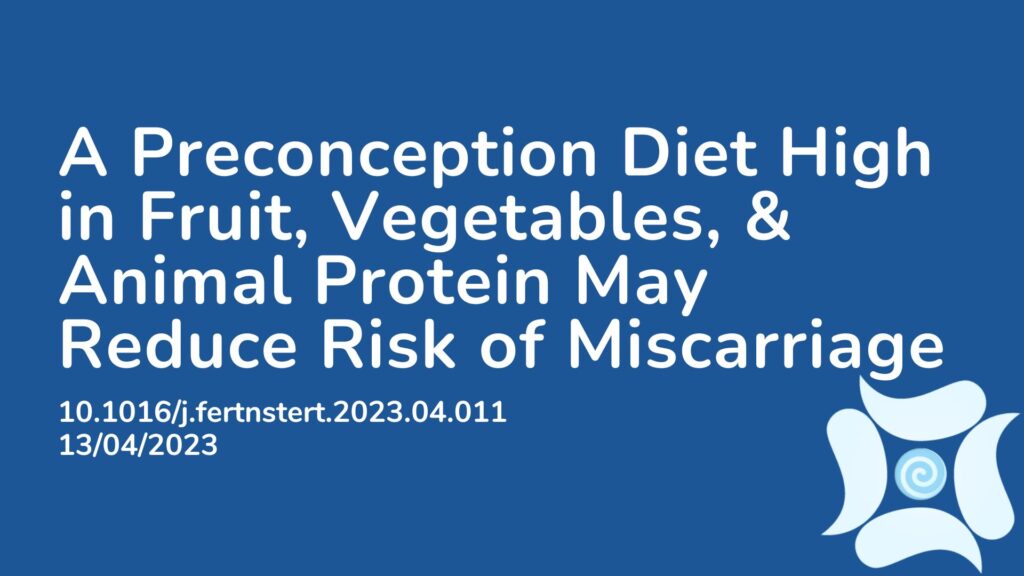Summary:
Researchers from the University of Birmingham have conducted this systematic review which examined 20 studies exploring the diet of women during the preconception and postpartum period, and whether there is any correlation with a risk of miscarriage. The research showed that a high intake of fruit is associated with a 61% reduction in risk of miscarriage and a high vegetable intake is associated with a 41% reduction in risk of miscarriage. Other foods such as dairy, whole grains, seafood and eggs also play a positive role in reducing miscarriage risk.
Abstract:
Importance: The evidence on the association between diet and miscarriage risk is scant and conflicting. Objective: To summarize the evidence on the association between peri-conceptual diet and miscarriage risk in healthy women of reproductive age. Data sources: Electronic databases were searched from inception to August 2022 without restriction of regions, publication types or languages. Study selection and synthesis: Experimental or observational studies were considered for inclusion. The population was healthy women of reproductive age. Exposure was peri-conception diet. Study quality was assessed using the modified Newcastle-Ottawa Scale. Summary effect sizes (odds ratio [OR] with 95% confidence interval [CI]) were calculated for each food category. Main outcomes: Miscarriage rate (as defined by primary studies) RESULTS: We included 20 studies (11 cohort and 9 case-control), of which 6 presented data suitable for meta-analysis (2 cohort and 4 case-control, n = 13,183 women). Our primary analyses suggest a reduction in miscarriage odds with high intake of the following food groups: fruit (OR 0.39, 95% CI 0.33 to 0.46), vegetables (OR 0.59, 95% CI 0.46 to 0.76), fruit and vegetables (OR 0.63, 95% CI 0.50 to 0.81), seafood (OR 0.81, 95% CI 0.71 to 0.92), dairy products (OR 0.63, 95% CI 0.54 to 0.73), eggs (OR 0.81, 95% CI 0.72 to 0.90) and cereal (grains) (OR 0.67, 95% CI 0.52 to 0.87). The evidence was uncertain for meat, red meat, white meat, fat and oil, and sugar substitutes. We did not find evidence of an association between adherence to pre-defined dietary patterns and miscarriage risk. However, a whole diet containing healthy foods as perceived by the trialists, or with a high Dietary Antioxidant Index score (OR 0.43, 95% CI 0.20 to 0.91) may be associated with a reduction in miscarriage risk. In contrast, a diet rich in processed food was demonstrated to be associated with increased miscarriage risk (OR 1.97, 95% CI 1.36 to 3.34). Conclusion and relevance: A diet abundant in fruit, vegetables, seafood, dairy, eggs and grain may be associated with lower miscarriage odds. Further interventional studies are required to accurately assess the effectiveness of peri-conception dietary modifications on miscarriage risk.
Article Publication Date: 13/04/2023
DOI: 10.1016/j.fertnstert.2023.04.011




